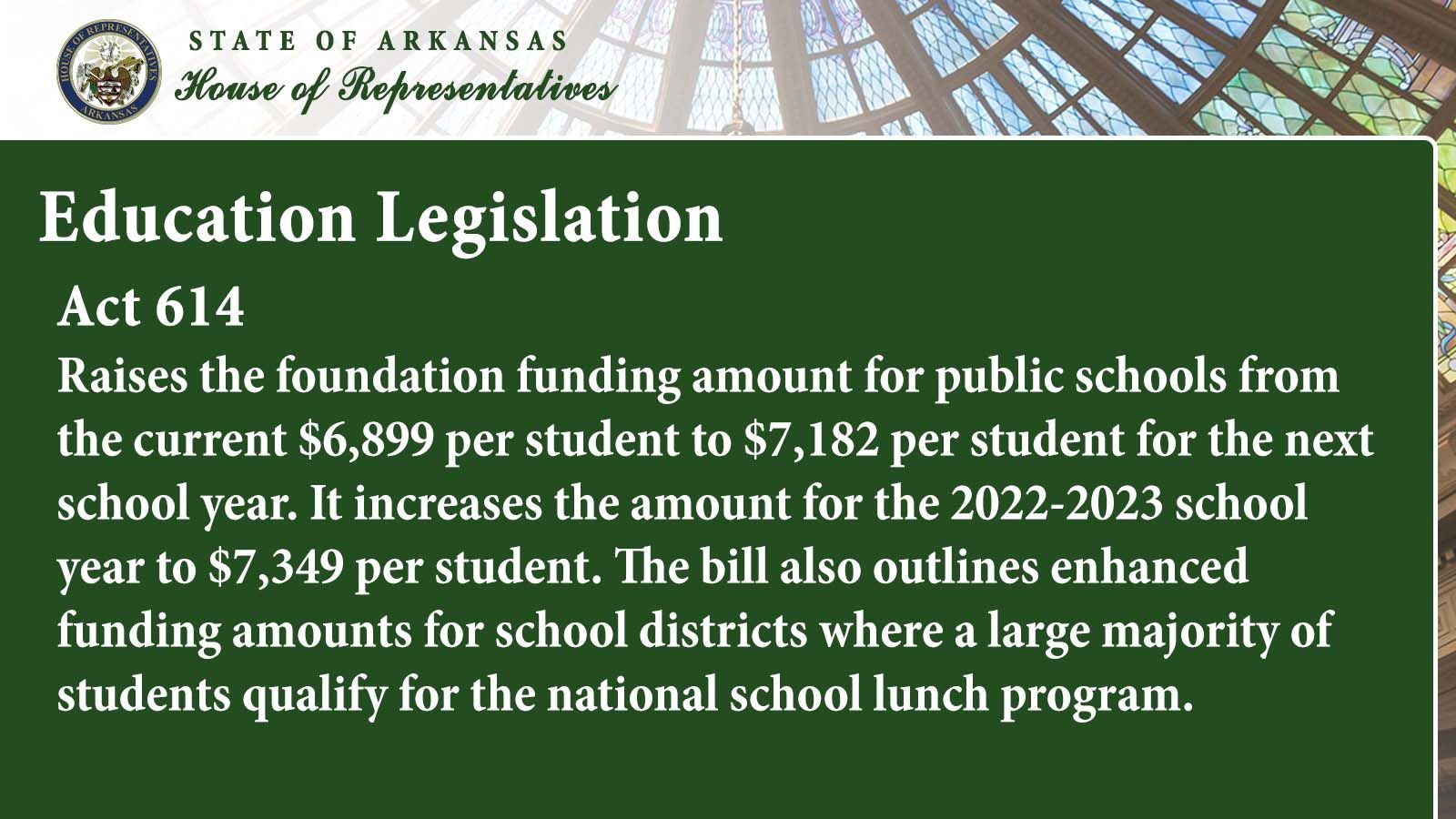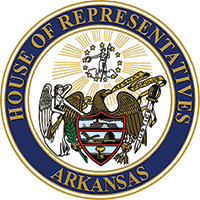
Act 614 raises the foundation funding amount for public schools from the current $6,899 per student to $7,182 per student for the next school year. It increases the amount for the 2022-2023 school year to $7,349 per student. The bill also outlines enhanced funding amounts for school districts where a large majority of students qualify for the national school lunch program.
Act 680 seeks to raise the average salary by creating the Teacher Salary Equalization Fund. The bill outlines a statewide target average of $51,822 for the 2021-2022 and 2022-2023 school years. This bill would direct the Department of Education to disperse money from the Equalization Fund to districts whose average teacher salary falls below $51,822.
Act 414 requires students entering the ninth grade class of 2022-2023 to earn one credit in a computer science course before graduation. SB107 states that beginning with the 2023-2024 school year, a public school district shall employ a computer science teacher at each high school.
Act 89 suspends the public school rating system for the 2020-2021 school year due to the disruption to education caused by the pandemic.
Act 912-This bill creates the Arkansas Tutoring Corps Act. It allows the Department of Education to develop a program to identify qualified tutors and a curriculum to support elementary students in reading and math. The bill states that data suggests that learning loss suffered as a result of the pandemic will be substantial, particularly for the state's most vulnerable students.
Act 909-This bill will allow a school district with declining enrollment to receive both declining enrollment funding and special needs isolated funding.
Act 904-This bill creates a tax credit for eligible contributions made to a scholarship-granting organization under the Philanthropic Investment in Arkansas Kids Program Act. This legislation would allow a student who has an annual family income less than or equal to 200% of the federal poverty level to receive an educational scholarship that covers all or part of the tuition and fees at a private school.
The scholarships would equal 80% of foundation funding for students in K-8 and 90% of foundation funding for high school students. The total amount of tax credits awarded in a year shall not exceed $2 million.
Act 953 -This bill states that members of the male sex are prohibited from an interscholastic, intercollegiate, intramural, or club athletic team or sport that is expressly designated for females, women, or girls. The bill also states the Attorney General may bring a cause of action for injunctive relief and any other relief available under the law against an entity that does not comply.
Act 611-This bill states that in the 2022-2023 school year, Holocaust education shall be taught in all public schools in a manner that generates an understanding of the causes, course, and effects of the Holocaust.
Act 646-This bill states that by August 1, 2022, each public school district and open-enrollment public charter school in the state shall prepare a three-year teacher and administrator recruitment and retention plan. The plan should include goals for recruitment and retention of teachers and administrators of minority races and ethnicities who increase diversity among the district staff and, at a minimum, reflect the racial and ethnic diversity of the district's students.
Act 648-This bill states that a public school district or open-enrollment charter school shall conduct a comprehensive school safety audit every three years to assess the safety, security, accessibility, and emergency preparedness of district buildings and grounds in collaboration with local law enforcement, fire, and emergency management officials.
Act 552- This bill would require public schools to provide parents prior written notification and an opportunity to inspect materials related to sex education, sexual orientation, and gender identity.
Act 606-This bill would adjust funding for public schools that offer curriculum not aligned with the Science of Reading. This bill also directs the Secretary of the Department of Education to hire an Education Ombudsman to assist the division in enforcement.
Act 536-This bill would allow public schools to offer a hunting safety course as part of their curriculum.
Act 688-This bill states that at the beginning of the 2022-2023 school year, a public school district board of directors may elect to implement an alternate school calendar. An alternate school calendar shall consist of at least 1,068 hours of instructional time. Currently, state law requires 178 days of instructional time. This law gives schools more flexibility on a start date and length of a school day.
